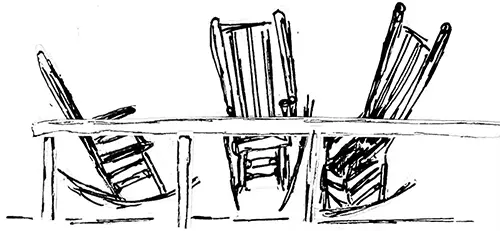The Nightstand 451
Toward Philosophy of Birth? A Review of Natality
For Banks, the glory of natality is not that it is a passage into the world for something or someone else, but that birth is a tool for our own…
Christopher Nolan: Anglo-American Apologist
Pattinson captured the appeal of Christopher Nolan’s movies: “You can either really, really dig into it, find so many different threads to pull, or you can appreciate it as a…
Conservatism in a Liberal Regime
These essays unite history, philosophy, and social commentary to say something about the ebb and flow of ideas which shape post-modern accounts of who we are and where we came…
Fleeing the Ephemeral and Pursuing the Eternal: A Review of Love What Lasts
But if our souls are eternal, why do we not then spend more time with things that habituate us to eternity? If our days are short, and the “days are…
Returning to the Love of the Book
Hooten Wilson draws on theological as well as literary works to demonstrate various approaches to a text, leading to the contemplative mode, which she asserts should be “the end of…
Advisor Wanting: The Absence of Moral Limits in Lady Macbeth
Our best ally should not be a man or woman who lacks the aptitude to discern right from wrong...one should not draw unto himself or herself a companion like Lady…
Vaya con Dios: Cormac McCarthy (1933-2023)
Somewhat surprisingly, this is also McCarthy at his most delighted at everyday joys. There are many tender passages of drinking coffee in porcelain cups in diners, eating tortillas and beans…
The Answer is Division
There's no place that division would not make things better. I don't say utopian, just better.
Ecological Curiosity for Faithful Feeling of Place: Mountain Nature and Strangers in High Places
So too does my eye for the Creator veiled and present in His evidence. Without them, how could I recognize what was first and larger in what I sense of…
Is Regime Change too Radical? Or too Conservative?
What is more radical, and more conservative, than to cast the ring into the fire? That would be a real “regime change,” would it not?
Putting the Demos on a Pedestal
Why Liberalism Failed was a good book, but Regime Change is a better one, and I think will be recognized as such—as well as one that will gain notoriety in…
Spider-Man Has Lost His Place
Spider-Man now devalues human-scale kindness and decency by questing in the multiverse, and ideological rigidity and swift judgment have replaced his former nuance and virtue-seeking.
A Local Look at the Meanings of the Founding: A Review of The Nation that Never Was
After excluding less plausible interpretations like Roosevelt’s, I think the Old Testamentish version of the Founding is the most defensible: the Founders left us some good principles which later were…
Observing Limits to Re-enchant a Mute World: A Review of The Uncontrollability of the World
Even Rosa the respectable sociologist entertains the possibility that if we relearned how to listen, the mountains might speak. Perhaps they too have their spirits, mute but waiting.
Antonin Scalia: A Man for All Seasons
Antonin Scalia’s judicial legacy was ratified on June 24, 2022 as the Supreme Court effectively overturned Roe v. Wade with the Dobbs v. Jackson Women’s Health Organization decision.
Get Off the Bench: Host a Cocktail Party
As someone who squirms every time I see a couple or family all quietly tapping their cell phones, a room of twenty people talking is a beautiful sight. It is…
Good Conversation and the Talking Cure: A Review
One cannot really have a book about conversation alone. Conversation is so much a fruit of individual persons and their relationship to one another, that a book about that fruit…
A Journey to Right Worship: A Review of Learning to Love
I was encouraged by Sosler and all the many ways he connected love and knowledge to the journey that a rightly ordered education invites students to take. The infilling of…
Prophetic History: A Review of A History of the Island
Contemporary sensibilities tend to prefer the nihilist abyss to such salvation, even as we pathetically pursue the latest "cure" for that emptiness—be that radical politics, surgical revisions to our anatomy,…
On Milosz, Exile, and Humane Art
Was it his commitment to truth in art that ultimately preserved his faith? Perhaps—God may have worked in that mysterious way. He seemed, late in life, to come to an…
Bono’s Search for Home
To hear that message of tough love for which he seems to be yearning, those who represent the church to Bono will have to have the courage to break through…
A Plunge into the Mythic Wood: A Review of Seren of the Wildwood
Here is what Seren of the Wildwood has done for me: it’s rekindled my love of narrative poetry. Once I have read several of my old favourites, I’ll read it…
Remembering Loss Together: A Review of The Meaning of Mourning
The need to reconcile with one’s finitude and live as good a life in light of this was made clear by many of the more successful essays and tallied with…
On Latimer, Localism, Liberalism, and Democracy
[Cross-posted to In Medias Res] Wichita, KS. Trevor Latimer’s Small Isn’t Beautiful: The Case Against Localism deeply engaged me, but not in a positive way, at least not initially. As…













